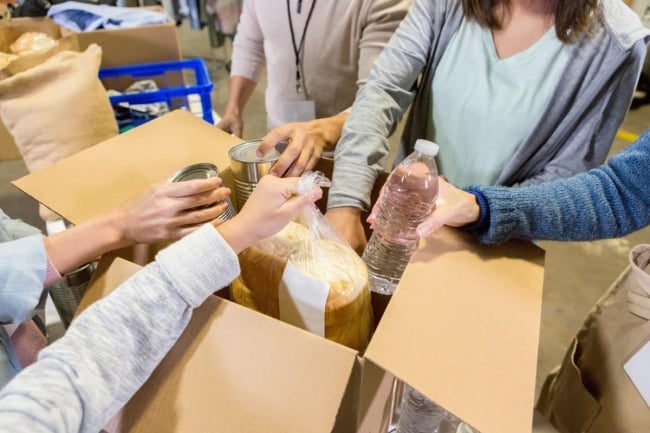You have /5 articles left.
Sign up for a free account or log in.

Istockphoto.com/SDI Productions
Last Thursday night, Noah French, a sophomore studying aerospace engineering at the University of Texas at Austin, couldn't sleep. The university had announced that day that operations were suspended to slow the spread of the new coronavirus.
"I was really anxious that whole day," he said. "Right now students don't know what the future holds. They don't know how they're going to be able to pay their rent, pay their utilities."
French had seen a spreadsheet made by students at Middlebury College circulating on Twitter. Middlebury had encouraged students early last week to leave the campus. The sheet was a way to coordinate "mutual aid," where students in need could post what would help them out and others who had money, storage space or free housing to offer could post their contact information.
The Middlebury sheet was full of entries.
"It just made me cry seeing it, because that showed to me that this was very real," French said.
That night he created a similar Google spreadsheet for UT Austin students to post the things they need or things they could help with.
Students at over a dozen universities have started similar spreadsheets, Facebook groups and resource documents. As more campuses close across the county, these resources continue to grow.
At the University of Virginia, the Student Council has led the effort. The council is currently matching donors to those in need and has raised over $10,000 in less than five days, said Isabella Liu, chair of the representative body.
"Student Council felt that it was very important for us to spring into action quickly and soften the blow of this move for the most vulnerable and marginalized in the UVA community," Liu said.
While some of the networks allow anyone to peruse the posts, some have moderators that work to connect people.
That's the case at the University of Pittsburgh, which encouraged students to leave last week as well. A few students started a Google form people could fill out if they needed housing, transportation or storage space. The student organizers have been individually matching those in need with people who have volunteered to help.
Though the Pitt form started with about six student organizers, now about 20 to 30 people are helping out, said Neerja Garikipati, one of the students behind the original form.
"There's a lot of fear and uncertainty and just general panic and worry about what's going to happen next," she said. "Having a presence that has resources and you know you can rely upon to help you if you need it has been really good."
Low-income students who have been asked to move out of residence halls can struggle with the costs of moving, storage and transportation and may not have parents who can help or come get them. Some might be dealing with lost wages as more businesses and campuses are forced to shut down. Many universities have said they will defray costs for students, but some level of need is still apparent.
The networks operate in different ways. At Wesleyan University, Jessi Russell decided to specify that the spreadsheet is for first-generation and low-income students. Students looking for assistance are asked to rank their level of need so that those in the worst situations can be prioritized with the most money.
"This is where we expect students to be as honest as possible," they said. "Need is high at this time, and we're well aware of that."
The need scale runs from 1 to 5, with 5 being severe need. Students are not asked to prove their level of need in this time of chaos, Russell said.
The Wesleyan sheet, similarly to other mutual aid networks, has places for people to volunteer housing or transport, but the plan is really centered around monetary donations. The GoFundMe account associated with the page raised over $45,000 in about a day. The goal is $950,000 to provide for over 200 high-need students in the short and long term. The funds will be transferred into an independent bank account and then distributed to first-generation, low-income students by check, Russell said.
"People have felt comfortable and I have felt honored in the way they've shared their stories," they said. "The hope that it's given people is big."
Garikipati, at Pitt, said the majority of offers she's seen have been for storage space. She said she understands that offering to house people you don't know might be hard for a lot of people, especially if you have roommates and especially with social distancing precautions from the government.
French, at UT Austin, said he was initially a little disappointed that people seemed incredibly eager to share his mutual aid sheet but less inclined to post on it. The university hasn't closed residence halls yet, which could be one factor, but also he said that sometimes a big university can feel isolating to people.
"As large as our university is, there is a lot of isolation and a lot of fear about how an individual might play a role in the community," he said. "There's a lot of fear about how to help others because I think we're taught to be closed off and stay in our comfort zones."
But he said he hopes more people are inspired to give and be honest about what they need.
"There's a lot of shame and guilt harbored in those people who know that they need something but have been told their whole life not to ask for it," French said. "As long as it was able to help one person, it was worth it."




